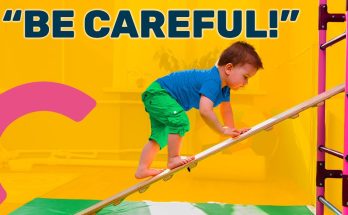Becoming a new parent is a life-changing experience, filled with excitement, joy, and a fair share of challenges. One of the most significant adjustments is learning how to care for your newborn. While there’s no one-size-fits-all approach to parenting, certain baby care skills are crucial for ensuring your baby’s health, comfort, and well-being. Here are 10 essential baby care skills every new parent should learn.
1. Proper Feeding Techniques
Whether you’re breastfeeding or bottle-feeding, mastering proper feeding techniques is one of the most important skills for new parents. Learning how to latch your baby correctly while breastfeeding is essential for ensuring they receive enough milk and for preventing discomfort or nipple issues for the mother. If you’re bottle-feeding, understanding paced bottle feeding helps reduce overfeeding, promotes healthy feeding habits, and mimics the natural rhythm of breastfeeding.
2. Burping Your Baby
Babies often swallow air while feeding, leading to discomfort, gas, and fussiness. Burping your baby helps release this trapped air and can prevent colic and reflux. There are various positions for burping, such as the over-the-shoulder method or sitting your baby on your lap. Practicing gentle, consistent patting on your baby’s back helps expel the air and makes feeding time more comfortable.
3. Changing Diapers
Changing diapers is something every parent will do many times a day. Learning how to change a diaper quickly, efficiently, and hygienically is an essential skill. Be sure to know how to properly clean your baby during each diaper change to prevent diaper rash. It’s also important to recognize signs of wetness or soiling to avoid discomfort and skin irritation for your baby.
4. Bathing Your Baby
Bathing a newborn can seem daunting, but it’s an important skill to master for both hygiene and bonding. In the early days, you’ll likely give your baby sponge baths until the umbilical cord stump falls off. Once they’re ready for a full bath, ensure the water temperature is comfortable (about 98°F or 37°C) and always support their head and neck. Bath time is also a great opportunity for gentle skin-to-skin contact, which strengthens the parent-child bond.
5. Swaddling Your Baby
Swaddling can be a soothing way to help your baby feel secure and sleep better. Learning how to swaddle properly is key to keeping your baby calm and preventing them from startling themselves awake. Ensure that the swaddle is snug but not too tight, especially around the hips and chest. Many parents find it helpful to use swaddle blankets with easy-to-follow instructions, especially in the early days.
6. Soothing Your Baby
Newborns cry to communicate their needs, but it can be hard for parents to determine the cause. Mastering soothing techniques, such as rocking, gentle shushing, swaddling, or using a pacifier, can help calm your baby. Sometimes, simply holding your baby close or using white noise from a sound machine can help comfort them. Understanding your baby’s unique preferences for comfort can make a big difference in managing their fussy moments.
7. Recognizing Baby’s Health Needs
Understanding your baby’s health needs is a fundamental skill for new parents. You should learn how to monitor your baby’s temperature, recognize signs of illness, and understand when to call a pediatrician. Familiarize yourself with common newborn health concerns such as fever, jaundice, or reflux. Knowing when a baby’s crying is normal or when it signals a health issue is critical to providing appropriate care.
8. Establishing a Sleep Routine
Establishing healthy sleep habits is essential for both you and your baby. In the early months, babies sleep a lot, but they often wake up frequently for feeding or comfort. Learn how to create a consistent bedtime routine to help your baby transition to sleep more easily. Be aware of safe sleep practices, such as placing your baby on their back to sleep and avoiding soft bedding or pillows in the crib to reduce the risk of SIDS (Sudden Infant Death Syndrome).
9. Clothing and Dressing Your Baby
Knowing how to dress your baby appropriately for the weather is another important skill. Babies can’t regulate their body temperature as well as adults, so it’s essential to layer them up in the winter and avoid overheating in the summer. Keep an eye on your baby’s comfort, and adjust their clothing accordingly. Check for signs of discomfort like sweating, cold hands, or flushed skin, which may indicate that your baby is either too hot or too cold.
10. Understanding Baby’s Developmental Milestones
Every baby grows and develops at their own pace, but learning about key developmental milestones can help you monitor your baby’s growth and development. This includes learning what to expect in terms of motor skills, sensory development, and social-emotional milestones. Knowing when to expect your baby to start smiling, holding their head up, or reaching for objects can help you celebrate their progress and alert you to any delays.
Conclusion
Caring for a newborn can feel overwhelming at first, but mastering these essential baby care skills will help you feel more confident and prepared. By learning how to feed, burp, bathe, soothe, and recognize your baby’s health needs, you’re laying a solid foundation for a positive and rewarding parenting experience. As you practice these skills and become more comfortable in your role as a parent, you’ll continue to build a strong bond with your baby and provide them with the care and support they need to thrive.



